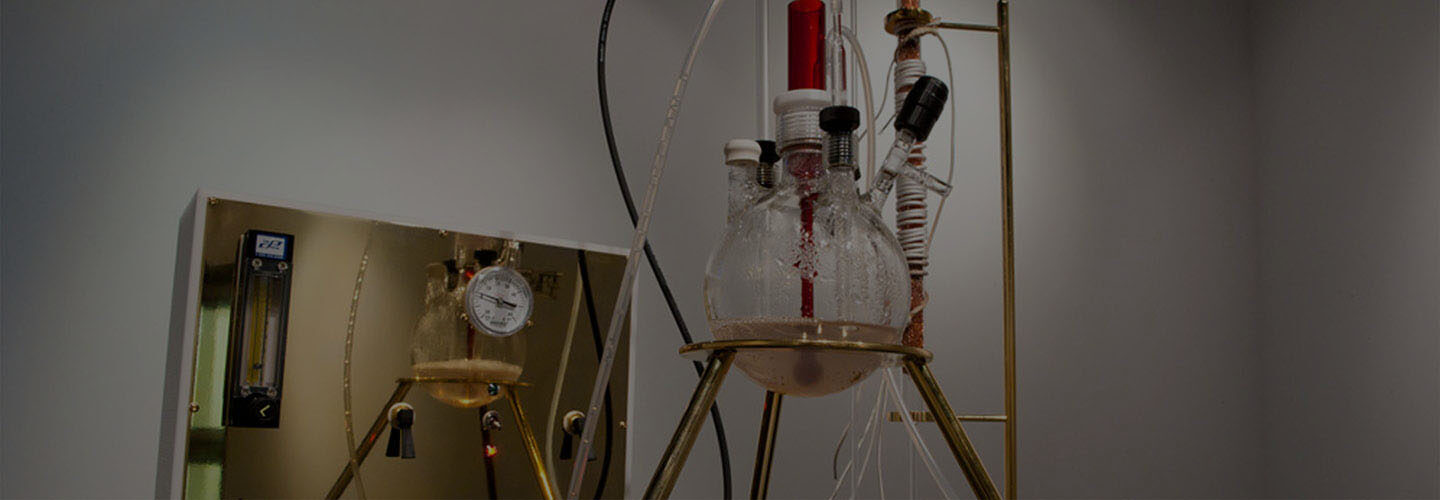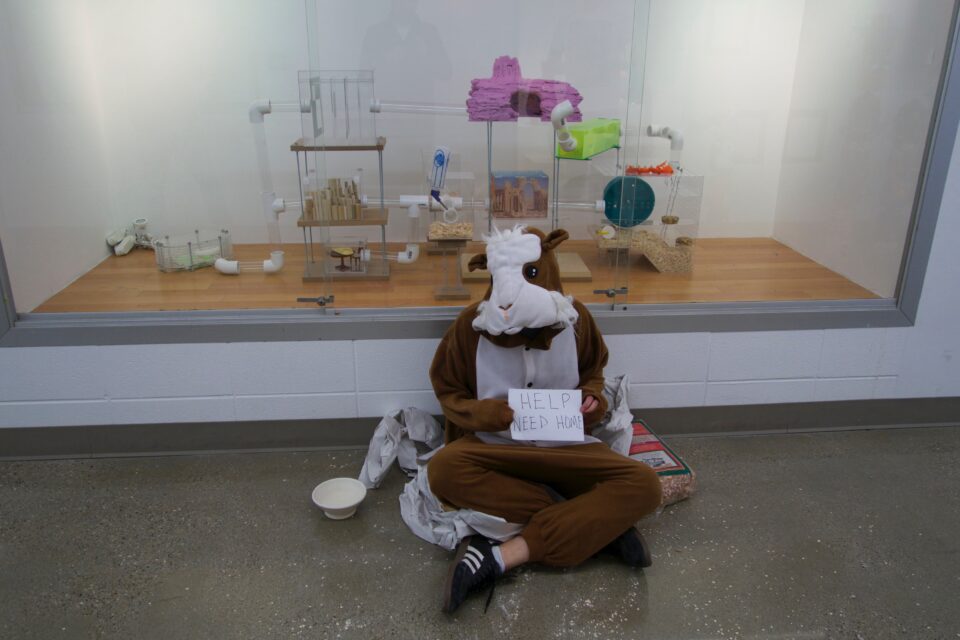STA 893
M 6-8:50
Kresge Art Center, RM 5
Fall 2017
Course Credits: 3
Instructor: Professor Adam Brown
Office: Room 27B, Kresge Art Center
Office hours: Wednesday 10-noon (office or the Intermedia Lab, Room 5) or by appointment
email: brown293@msu.edu (preferred method of contact)
Connect to course on D2L
This course will focus on professional practices where students will work towards tangible goals and outcomes as it relates to a career in the arts. Students will develop dissemination strategies in a critical and supportive context. The desired outcome of this course is that students will develop a well-formulated and flexible strategy that will aid them as they move forward in the first several years post-graduate school. Students will practice presenting their work, apply for faculty positions, learn about grants and fellowships, apply for exhibition/and or residency opportunities and utilize communication technology.
Course Objectives:
• Develop a strategic approach to professional practice.
• Improve speaking and lecture skills
• Use and enhance self promotion strategies
Course Requirements:
• Enact a job search – Identify an academic position from CAA, Academic Keys, etc and produce necessary documents for that search. Including cover letter, teaching philosophy, artist statement, CV, work samples and sample syllabi.
• Develop online content of your creative practice.
• Deliver a 45 minute public lecture for colleagues and art faculty with Q&A
• Apply for an external residency or exhibition
Topics Covered:
• Self promotion
• Job searching
• Website development and Social Media strategies
• Grant writing
• Exhibitions and Residencies
Grading:
Overall grades are based on in-class participation and completed documents and lecture.
Communication:
Have your university supplied email account properly forwarded to the location where you read email.
Reasonable Accommodation Policy:
Michigan State University is committed to providing equal opportunity for participation in all programs, services and activities. Contact me as soon as possible so we can discuss accommodations necessary to ensure full participation and facilitate your involvement in this class. Accommodations for persons with disabilities (http://www.rcpd.msu.edu) may be requested by contacting me at the start of the term.
Academic Integrity:
In accordance with MSU’s policies on “Protection of Scholarship and Grades” and “Integrity of Scholarship and Grades,” students in STA 380 are expected to honor principles of truth and honesty in their academic work. Academic honesty entails, among other things, that students will not plagiarize. This means (1) students will not submit someone else’s work as their own (e.g., they will not submit another student’s paper or project, etc., nor will they hand in a paper copied from the web or another published source). Academic honesty also means students (2) will not knowingly permit another student to copy and submit their work as that student’s own and (3) will not use unacknowledged quotations or paraphrases as part of their work. As provided by university policy, such academic dishonesty or plagiarism may be penalized by a failing grade on the assignment or for the course. Failure in a course as a result of academic dishonesty will also result in written notification to the student’s academic dean of the circumstances. Additional discussion of cheating or academic dishonesty is available on the Ombudsman’s web page.
Emergency Protocol:
In the event of an emergency arising within the classroom/lab, the instructor will notify you of what actions that may be required to ensure your safety. It is the responsibility of each student to understand the evacuation, “shelter-in-place,” and “secure-in-place” guidelines posted in each facility and to act in a safe manner. You are allowed to maintain cellular devices in a silent mode during this course, in order to receive emergency SMS text, phone or email messages distributed by the university. When anyone receives such a notification or observes an emergency situation, they should immediately bring it to the attention of the instructor in a way that causes the least disruption. If an evacuation is ordered, please ensure that you do it in a safe manner and facilitate those around you that may not otherwise be able to safely leave. If a shelter-in-place or secure-in-place is ordered, please seek areas of refuge that are safe depending on the emergency encountered and provide assistance if it is advisable to do so.”
Copyright notice: Many of the materials created for this course are the intellectual property of Adam Brown. This includes, but is not limited to, the syllabus, lectures and course notes. Except to the extent not protected by copyright law, any use, distribution or sale of such materials requires the permission of the instructor.

